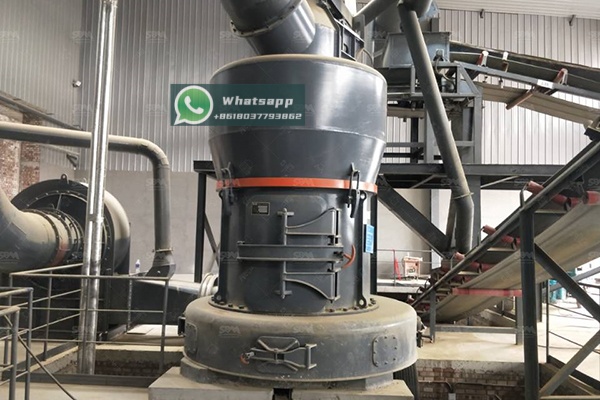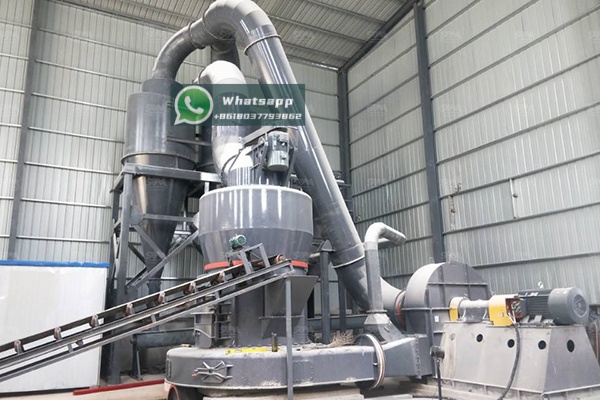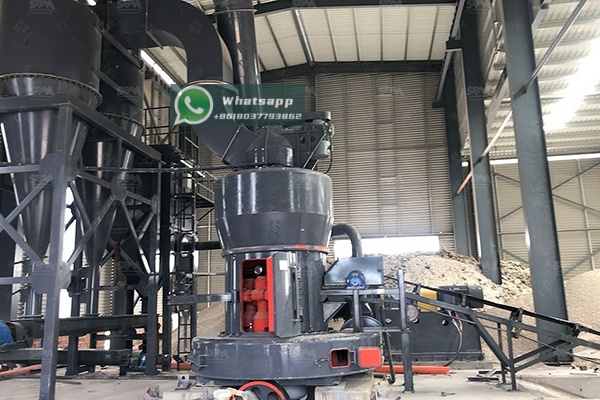The animal feed industry has evolved significantly over the past decades, with pelletized feed becoming the standard for modern livestock and poultry production. The process of pelletizing involves compressing feed mixtures through dies to create dense, uniform pellets that improve feed efficiency, reduce waste, and prevent selective feeding. A critical component in this process is the binder that holds the pellet together, and among the most effective natural binders available is bentonite clay. The efficient processing of bentonite for this application requires specialized grinding equipment, and Raymond Mills have proven to be particularly well-suited for this task.
Bentonite, a naturally occurring clay primarily composed of montmorillonite, serves multiple functions in animal feed production. Its most valuable property in pelletizing is its exceptional binding capability. When moistened, bentonite particles swell and form a gelatinous substance that acts as a natural adhesive, binding feed ingredients together during the pelletizing process. This results in pellets with higher durability, reducing fines (dust) during handling and transportation.
Beyond its binding properties, bentonite offers additional benefits in animal nutrition. It can act as a detoxifying agent, binding to mycotoxins and other harmful substances in feed. It also contributes to animal health by improving gut health and nutrient absorption. The swelling capacity of bentonite helps create a feeling of satiety in animals and can improve feed conversion ratios.

For bentonite to effectively perform these functions in feed pelletizing, it must be ground to a specific fineness. Typically, a particle size between 200-325 mesh is required to maximize the surface area and binding capacity. This is where the importance of proper grinding technology becomes evident.
Grinding bentonite presents several technical challenges that must be addressed to achieve optimal results in feed pelletizing. Bentonite has unique physical properties, including high moisture content, plasticity, and a tendency to agglomerate. These characteristics can cause clogging and reduced efficiency in conventional grinding systems.
The moisture content of raw bentonite typically ranges from 8-15%, which can create handling and grinding difficulties. If not properly managed, this moisture can lead to material buildup in the grinding chamber and classification system, reducing throughput and potentially causing operational shutdowns. Additionally, bentonite’s plate-like crystal structure requires careful grinding to avoid damaging the mineral’s natural swelling properties, which are essential for its binding function in feed pellets.
Energy consumption is another significant consideration, as inefficient grinding systems can dramatically increase production costs. The feed industry operates on thin margins, making operational efficiency a critical factor in equipment selection.
Raymond Mill technology has been successfully applied to mineral processing for nearly a century, and its design principles make it particularly suitable for bentonite grinding in the feed industry. The working principle involves grinding rollers applying centrifugal force to the grinding ring, crushing the material between them. The ground material is then carried by air flow to the classifier, where oversized particles are separated and returned for further grinding.
For bentonite processing specifically, Raymond Mills offer several advantages. Their design accommodates materials with moderate moisture content without requiring pre-drying in many cases. The grinding mechanism effectively reduces bentonite to the required fineness while preserving its beneficial physical properties. The integrated classification system ensures consistent particle size distribution, which is crucial for uniform performance in feed pelletizing.

Shanghai Zenith Machinery Co., Ltd. has established itself as an excellent manufacturer of ore grinding equipment in China, with significant achievements in the field of ultra-fine powder grinding. Specializing in the research, development, and production of industrial powder grinding equipment, Zenith offers several Raymond Mill models specifically engineered for materials like bentonite.
Among their product lineup, the YGM series Raymond Mills stand out for bentonite processing in the feed industry. These mills combine traditional Raymond Mill principles with modern technological improvements, resulting in higher efficiency, lower energy consumption, and reduced environmental impact.
For medium to large-scale feed production facilities processing bentonite, the YGM4121 Raymond Mill represents an optimal solution. This model features five grinding rollers, providing sufficient grinding force for bentonite while maintaining energy efficiency. Its robust construction ensures reliable operation with minimal downtime, a critical consideration for feed mills operating continuous production schedules.
| Model | Roller Quantity (pcs) | Max.Feed Size (mm) | Discharging Size | Capacity (t/h) |
|---|---|---|---|---|
| YGM4121 | 5 | 30 | 1.6-0.045 | 5-11 |
The YGM4121’s capacity range of 5-11 tons per hour aligns well with the production requirements of most commercial feed mills. The discharge size range of 1.6-0.045mm (approximately 20-325 mesh) covers the optimal particle size spectrum for bentonite in feed applications. This flexibility allows feed producers to fine-tune the bentonite fineness based on specific formulation requirements.
For operations requiring higher throughput or processing multiple mineral additives beyond just bentonite, Zenith’s MTM160 Medium-Speed Grinding Mill presents an excellent alternative. As an advanced iteration of traditional Raymond Mill technology, the MTM series incorporates multiple patent-protected improvements that enhance performance and reliability.
| Name | Ring roll number (pcs) | Max. feed size (mm) | Output (t/h) | Main unit motor power (kW) |
|---|---|---|---|---|
| MTM160 | 6 | <35 | 9-22 | 132 |
The MTM160 offers several advantages for bentonite processing, including higher capacity (9-22 t/h), larger maximum feed size (<35mm), and improved energy efficiency. Its design features include curved air ducting that reduces air flow resistance and an internal powder concentrator that enhances classification efficiency. These features collectively contribute to lower operational costs and more consistent product quality.
Successfully integrating a Raymond Mill into a feed mill’s bentonite processing operation requires attention to several operational factors. Proper feeding system design is crucial to maintain consistent mill loading and prevent blockages. Given bentonite’s tendency to absorb moisture, environmental controls in the grinding area may be necessary in humid climates to prevent material handling issues.
Maintenance protocols should include regular inspection of grinding elements (rollers and rings) and the classification system. Bentonite, while not particularly abrasive compared to some minerals, can still cause wear over time. Zenith’s Raymond Mills are designed with easily replaceable wearing parts to minimize maintenance downtime.
Dust collection is another important consideration. While modern Raymond Mills are designed as closed systems, additional dust collection equipment may be necessary to maintain a clean working environment and meet workplace safety standards.

Investing in appropriate grinding technology for bentonite processing delivers significant economic benefits to feed manufacturers. Properly ground bentonite improves pellet quality, reducing fines generation during handling and transportation. This directly translates to cost savings by minimizing product loss.
Enhanced pellet durability also improves feed conversion ratios in animals, as less nutritional value is lost as dust. The binding properties of optimally ground bentonite may allow for reduced usage rates while maintaining pellet quality, further reducing raw material costs.
From an operational perspective, Zenith’s Raymond Mills offer energy-efficient performance, reducing electricity consumption compared to less specialized grinding equipment. Their reliability minimizes production interruptions, ensuring consistent bentonite supply for feed production schedules.
The animal feed industry continues to evolve, with increasing emphasis on feed efficiency, animal welfare, and environmental sustainability. These trends will likely influence bentonite processing requirements in the future. There is growing interest in functional feed additives that provide benefits beyond basic nutrition, and bentonite’s detoxification properties position it well in this context.
Grinding technology must adapt to these changing requirements. Future developments may include more precise particle size control to optimize specific functional properties of bentonite, as well as improved energy efficiency to reduce the carbon footprint of feed production. Shanghai Zenith Machinery continues to invest in research and development to address these evolving industry needs.
Bentonite plays a crucial role in modern animal feed pelletizing, serving as an effective natural binder that improves pellet quality and offers additional nutritional benefits. The efficient processing of bentonite to the appropriate fineness is essential to maximize these benefits, and Raymond Mill technology has proven particularly suitable for this application.
Shanghai Zenith Machinery’s YGM4121 Raymond Mill and MTM160 Medium-Speed Grinding Mill represent advanced solutions specifically engineered for minerals like bentonite. With their robust construction, operational efficiency, and precise particle size control, these mills enable feed producers to optimize their bentonite processing for improved pellet quality and production economics.
As the feed industry continues to advance, the importance of specialized grinding equipment for feed additives will only increase. By selecting appropriate technology and implementing proper operational practices, feed manufacturers can leverage the full potential of bentonite to produce high-quality, cost-effective animal feeds.